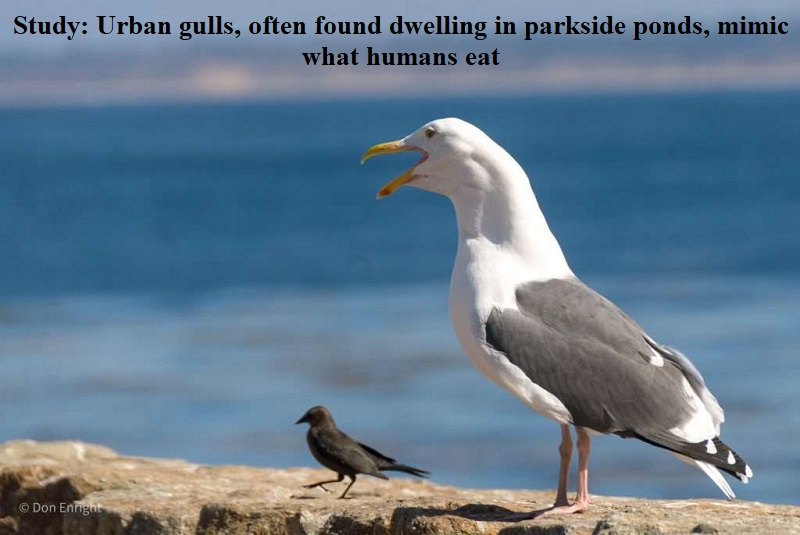
A recent study published in Biology Letters has revealed that urban gulls, commonly found near parkside ponds, have a strong preference for human food and would choose to eat the same food as humans 95 percent of the time if given the choice.
The study focused on herring gulls (Larus argentatus), a species known to inhabit areas close to human settlements. The researchers aimed to understand inter-species social cognition by studying these gulls.
The findings showed that gulls living in urban environments closely observe human behavior regarding food and can be described as kleptoparasites, a term used to describe species that steal food from others. Franziska Feist from the University of Sussex explained that many people underestimate the intelligence of gulls, but the act of kleptoparasitism suggests a higher level of cognition, prompting further exploration.
The research team conducted experiments on the Brighton beachfront in 2021 and 2022, manipulating the gulls’ attention through cues and observing their reactions over several months. They presented the herring gulls with a choice between two differently colored food items, such as packs of potato chips. The gulls were observed in the presence of a human who either did nothing or ate food matching one of the two items.
The results showed that 48 percent of the observed gulls approached the food when the experimenter was eating, compared to 19 percent when they were not eating. Furthermore, when the gulls did approach the food, they chose the same color as the food the experimenter was consuming 95 percent of the time.
According to the researchers, these findings indicate that gulls can utilize human cues to influence their foraging decisions. Since their urban foraging behavior is relatively recent in evolutionary terms, these abilities may be a by-product of the cognitive flexibility exhibited by kleptoparasitic species.
Feist emphasized that the gulls’ evolutionary history did not involve interactions with humans, making their ability to learn from another species through observations a product of general-purpose intelligence rather than an innate ability. Damien Farine from the University of Zurich expressed excitement about the study’s implications, highlighting the adaptability of gulls when it comes to foraging.
In conclusion, the study demonstrates that urban gulls possess a high level of adaptability and can make foraging choices based on human cues, indicating their ability to learn from and adapt to their environment.

Post Your Comments